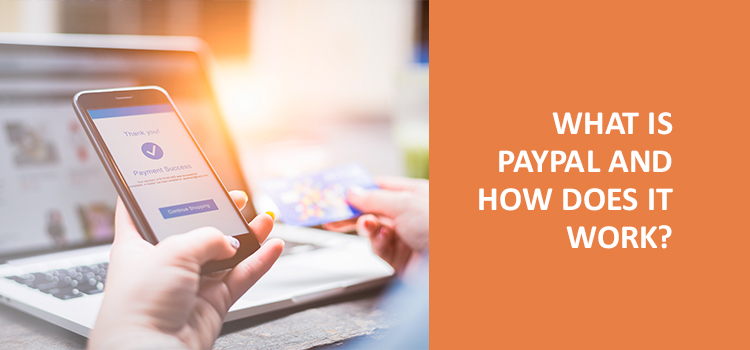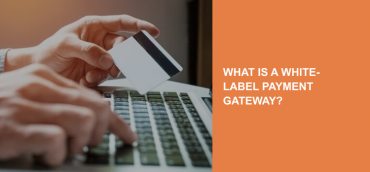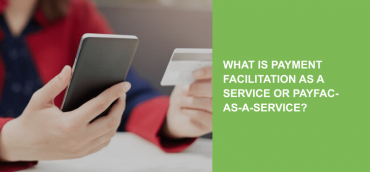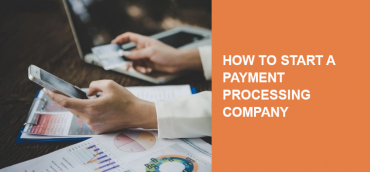Just like Nike is the king in the world of sneakers, PayPal is the king in the world of payments. It is hardly possible to find someone who hasn’t heard about the brand. However, not everybody knows what PayPal is and how does it work. The time is ripe for discovering the truth about the well-known payment processor. Continue reading to find out what is PayPal, how it works, and what the difference between PayPal account types is.
What is PayPal?
PayPal is a payment processing service. Simply put, it allows to both send and accept funds globally. If you are looking for a guide on how to send money to your grandma, close the current link. In this article, we won’t dive into PayPal benefits for individuals. In this article, we won’t dive into PayPal benefits for individuals. Instead, we’ll focus on its usage for merchants.
PayPal allows business owners to accept payments on their websites or online marketplaces. The service also provides merchants with:
- A personal merchant’s dashboard;
- Fraud prevention tools;
- High-quality customer support;
- Different ways of the funds’ withdrawal.
- Checkout page customization.
How does PayPal work?
Check out the next stages to see how the PayPal payment goes:
- The client enters your website/eStore and selects a product/service.
- After pressing the “BUY” button, the client gets redirected to PayPal.
- The client logs in to his/her PayPal account and confirms the payment.
- PayPal processes the payment and transfers the funds to your PayPal account. The payout usually takes from 3 to 5 business days. Keep in mind that weekends and holidays might impact the timing of when your money is deposited.
If you are a careful reader, you might get suspicious. What about those consumers who don’t have a PayPal account? Won’t they be able to pay on my website? They will. But only if you open a PayPal Business or PayPal Premier account.

PayPal business account VS PayPal personal account VS PayPal premier account
As for today, PayPal offers three types of accounts. Take a look at their brief descriptions:
PayPal Personal Account.
PayPal personal account is initially meant for shopping online as well as sending and accepting money from friends and relatives. Some merchants, though, use it for business needs. The truth is, you can do it as well. PayPal allows selling and accepting payments with a personal account. However, get ready for some disadvantages:
- Clients who don’t have a PayPal account won’t be able to pay on your website/eStore;
- Clients won’t see your company’s logo and name at the checkout. It might raise concerns about safety.
PayPal Business Account.
It fits those who merchants who operate under a company/group name. It offers other features such as allowing up to 200 employees limited access to your account and customer service email alias for customer issues to be routed for faster follow-ups.
- Clients can pay via credit cards and PayPal electronic money;
- Clients can check out as guests. That means a client can pay even if he/she doesn’t have a PayPal account.
- The logo and name of your company displayed at checkout.
PayPal Premier account.
This type of account is recommended for casual sellers or non-businesses who wish to get paid online, and who also make online purchases.
- Clients can pay via credit cards and PayPal electronic money;
- Clients can check out as guests.
- The logo and name of your company displayed at checkout.
To sum up, PayPal Personal Account is unbeneficial for your business as it does not accept payments from non-PayPal users. The only difference between PayPal business and PayPal Premier is that PayPal Business allows limited access for up to 200 employees of yours.

What are PayPal merchants’ fees?
The PayPal fees are the same no matter of account type you choose:
Inside the U.S. PayPal charges a fee of 2.9% of the transaction amount plus a fixed fee based on the currency.
Outside the U.S PayPal charges a fee of 4.4% of the transaction amount plus a fixed fee based on the currency.
Here comes the downside of PayPal. The high fees for international sales become a burden for merchants targeting non-U.S. countries. There are PSPs who are much cheaper than PayPal when it comes to global sales. Learn more about top 10 PayPal alternatives to discover more profitable payment options.
How to set up a PayPal account for my business?
It is as easy as possible:
- Enter the PayPal website.
- Press the Sign In button.
- Complete the short registration procedure.
To successfully open a PayPal Business or PayPal Premier account, you need to have a business bank account. It links to your PayPal account for further funds transfers. A working website (or an eStore on the marketplace) is a must as well. You will also need to provide such information as your name, email, shipping address. Once you complete the set up of your account, check out the PayPal video guide on how to integrate PayPal in your eCommerce website.

How do I withdraw money from PayPal to my bank account?
There are several options to access your funds:
- Sign up for a PayPal debit card. Once you do so, you will be able to use it, paying directly, or withdrawing money from ATMs. Keep in mind that charges from your local ATMs will apply on cash withdraw.
- Request a paper check through the mail. In PayPal, it costs $1.50 to receive a check. There is also an option to transfer the money into your checking account electronically. It usually from three up to four business days for the funds to transfer.
What payment methods does PayPal accept?
Once you choose PayPal as your only payment method, you will be able to take:
- Credit card payments. That means clients can pay on your website via their credit and debit cards.
- Paypal electronic money. Once clients pay with PayPal cash, you don’t get the real money straightforward. You get the PayPal dollars that you can convert to real currency.
Do you see the point? PayPal won’t allow you to accept cryptocurrency, remittance system transfers, and eWallets payments. Just credit card and PayPal dollars. That’s it. Check out Top 5 payment gateways comparison to discover other options.
What is PayPal’s electronic money?
As mentioned before, PayPal offers to accept credit card payments and electronic money transfers. When paying via electronic money, clients don’t need a credit card. They log in to their PayPal account to accomplish the payment.

What are the disadvantages of PayPal’s electronic money?
- Quasi money. Merchants can’t get the “live” money straight away. Instead, they get so-called quasi money like the PayPal dollar. Later, businessmen have to convert that money into real dollars. That leads to conversion risks.
- Unsupported countries. Though well-known, PayPal services only function in specific areas. Merchants from Africa, Asia, Eastern Europe, and the Middle East are prohibited from using PayPal. As a result, they can’t use such a payment option on your website.
- Payouts limits. PayPal only allows withdrawing a limited amount of funds. That is due to the security policy of a company. In might happen that PayPal will require an approvement from a customer who paid for your services. It only happens when a high-ticket transfers take place. Learn more about How to accept payments: top 3 ways to get paid in 2019.
PayPal advantages
Now, let’s sum up what are the main advantages of PayPal for merchants:
- Easy onboarding and integration. Unlike many payment processors, PayPal is really easy to use. A fast registration procedure combined with easy integration to a website/eStore makes it a good option for beginners. As well as for those who are not keen on HTML or collecting tonnes of documents.
- Beneficial fees for the U.S. market. PayPal is a viable option for penetrating the U.S. market. From selling salsa at a local festival to running an eCommerce store, it is a perfect fit.
- Range of account to choose from. Selecting a Premier account is a winning option for small businesses, while a Business account fits large network owners.
PayPal disadvantages
Check out the main disadvantages you face when choosing PayPal:
- Limited range of countries. Though supporting 100+ countries, PayPal does not cover a vast part of the world. The majority of African, Eastern Europe, and Asian merchants won’t be able to even open an account.
- Poor conditions for selling globally. A fee of 4.4% plus a fixed fee based on the currency for all the transactions outside the U.S makes PayPal unfavorable for selling globally.
- Restricted range of businesses. The company does not work with high-risk businesses.
- Limited range of payment options. PayPal allows you to accept nothing but credit cards and PayPal transfers. Alternative payment methods like eWallets, crypto, and remittance systems are now rising to prominence. Therefore, users of PayPal can’t benefit from a trend.
PayPal VS Ikajo International
PayPal is the best option for the U.S. as it is trusted and has affordable fees. However, its high commissions make it unbeneficial for international businesses. Ikajo International, on the contrary, offers favorable conditions for those willing to reach out to the global audience. While PayPal charges a fee of 4.4% for the transaction outside the U.S., the fees of Ikajo start at 1.2%, no additional fees. Moreover, Ikajo International offers free recurring billing and a wide range of payment methods. While PayPal supports credit cards and PayPal money, Ikajo also accepts cryptocurrency, eWallets, credit cards, mobile banking, and remittance system transfers. PayPal, unfortunately, does not provide services for high-risk merchants, while Ikajo does.
Reasons to choose Ikajo International instead of PayPal:
- You want to open a merchant account;
- PayPal does not support your country;
- You are planning to sell globally and do not want to overpay;
- PayPal fees are too high for your current budget;
- You want to accept credit cards, cryptocurrency, and eWallets payments.
- You run a high-risk business.
If you have at least one positive answer, fill in the short application and we will reach you out with a beneficial payment solution today.





